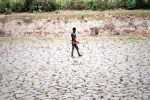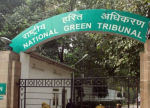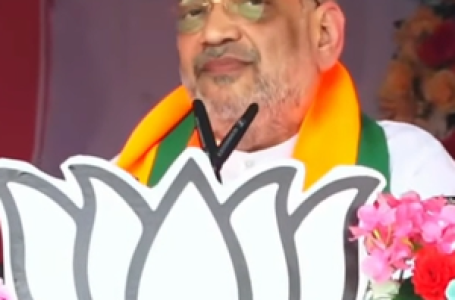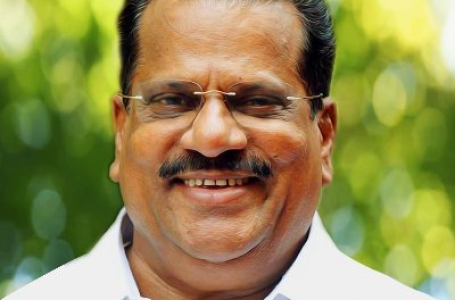By Vishal Gulatai
New Delhi: India, China, Brazil and some other developing countries have failed to convince the world at the UN climate change negotiations named COP25 to evolve rules for trading internationally their carbon credits which help nations decarbonise economies at lower cost.
Almost 200 countries failed to agree unanimously on Article 6 of the Paris Agreement rulebook concerning the carbon markets system as the lengthy negotiations concluded in Madrid on Sunday, two days past the official deadline.
The developed world took the stand of not allowing the ‘junk’ carbon market, which allows buying and selling of carbon emissions, and emerged under the Kyoto Protocol adopted in December 1997 to continue in the exiting mechanism under the Paris Agreement that is coming into force from January 2021.
They blamed faulty mechanism and loopholes in the existing system that failed to prevent double-counting of carbon credits and wanted a new mechanism to be put in place.
Several countries like India were demanding to carry forward the old carbon credits earned also by companies to meet new climate targets.
The carbon credit system allows countries to reduce their emission reduction targets by accumulating and trading in carbon credits.
As per rough estimates, nations hold close to 4 billion unsold certified emission reductions (CERs). India has a depository of 750 million and China has much more than India.
One CER equals to one tonne of carbon dioxide. The CERs help companies earn billions of dollars by trading them. Currently, there is market but no political platform.
Climate experts told IANS that the only saving grace for India, China and Brazil and some other countries was that they did not allow the developed nations to completely reject the carbon trade mechanism, still a key component for the full operationalisation of the Paris Climate Change Agreement.
This issue will now be discussed in the next round of UN climate negotiations that will take place in Bonn, Germany, in June 2020 and later in Glasgow, Scotland, at the COP26 in November.
Last year at the climate summit in Poland, the bulk of the implementation guidelines of the Paris Agreement were agreed upon, with the exception of Article 6 of the Paris Agreement.
Article 6 of the Paris Agreement provides guidelines as to how international climate markets will work, as a key component of the world’s economic toolbox for addressing climate change.
It allows emission reductions to be implemented in one country and the credit to be transferred to another and be counted towards its commitments (known as nationally determined contributions or NDC).
“The international community lost an important opportunity to show increased ambition on mitigation, adaptation and finance to tackle the climate crisis,” said UN Secretary General Antonio Guterres.
“Various concerns had been negotiated over future carbon markets, but many were left out during COP25 (in Madrid). But we still have a last chance to negotiate during COP26 in the UK next year to clear all doubts and concerns before we hit January 1, 2021, i.e., the start of the Paris Agreement era,” Manish Dabkara from EnKing International, which is involved in carbon credits trading, told IANS.
He said the crucial clauses dealing with the carbon markets has been bracketed, meaning it can be put to further negotiation and adoption.
Negotiators told IANS that the parties failed to arrive at consensus on the carbon markets, especially on bilateral trading between countries and trading through multilateral platforms.
In the final hours of negotiations, 29 countries rallied in favour of the San Jose Principles in an effort to preserve the integrity of carbon market rules and prevent loopholes.
“If markets are to increase ambition, the rules have to be as robust as the San Jose Principles,” said Franz Perrez, head of the Swiss delegation at COP25.
“It is disappointing that after years of hard work and especially during the last two weeks that we could not agree on article six,” the EU delegation said in a statement.
Vibhuti Garg, energy finance analyst with IISD, said: “Finance is crucial to increase ambitious. The intent is clear, but this must also translate into implementation.”
“Carbon markets provide a huge opportunity to unlock funds that have been hard to come by. If done right, this could help several developing countries to reduce their emissions. However, if done wrong, this could potentially jeopardise the environmental integrity of the Paris Agreement by allowing countries to pollute. It’s bad that the negotiators did not take this into account and simply pushed to the next year,” Garg said in a statement.
In India, 1,669 projects have been successfully registered under the Clean Development Mechanism (CDM) mechanism, millions of certified emission reductions (CERs) credits remain unsold with collapsing of the CDM market.
Sam Van den plas, policy director at Carbon Market Watch said: “People all over the world are asking for urgent action and several countries only offered accounting tricks and cover for climate inaction.”
“These loopholes are nothing but a way of cheating the climate and betraying the people. What was on the table here could have been a real disaster for the Paris Agreement. We need carbon markets to increase climate action, not undermine it, to protect the environment and to uphold human rights and benefit local communities.”
Future carbon market negotiations will need to deliver robust rules, said Sam Van.
A UN report released last month warned that the world is currently headed toward a 3.2 degrees temperature rise by the end of the century, urging industrialised countries to raise their ambition to enact deeper emissions cuts. IANS



















